
India Rich List 2017: Books billionaires read for inspiration
Billionaires on the books that have had an impact on them and the ones they keep going back to
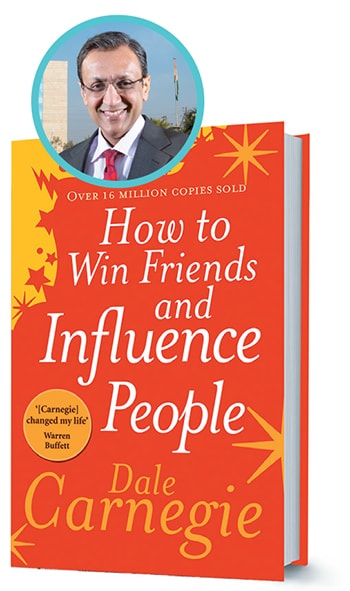
Anil Rai Gupta
Chairman and MD, Havells India
How to Win Friends and Influence People by Dale Carnegie, the 1936 bestseller, is like my constant friend that has helped carve me into the individual I am. It forever reminds me of my father [Qimat Rai Gupta] who embodied every quality that Carnegie recommended, and pens down all those values—that my father always taught me—so beautifully. It has been a strong force in enhancing my interpersonal skills and professional capabilities, and is a strategy guide to success, both inside and outside the workplace. I read this book once every year, create my own CliffsNotes and keep reviewing them.
Currently, I am reading The Last Spring: The Saga of the Great Mughals by Abraham Eraly. I have been an avid reader of Indian history since the prime years of my life. The best part about reading history is that facts speak for themselves. What makes me want to read more and more about history and, in particular, dynasties is the opportunity to learn from their successes and failures, hits and misses, managing a family business and enduring legacies. I am halfway through the book and the magnificent illustrations of the grandeur of the Mughal Empire do not cease to fascinate me. Eraly has written on various ages of Indian history and it’s fascinating to read his works.
— As told to Neeraj Gangal
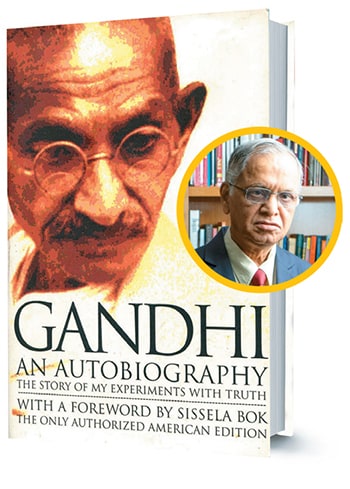
NR Narayana Murthy
Founder, Infosys
Three books that have influenced me much are The Story of My Experiments with Truth by Mahatma Gandhi, The Protestant Ethic and the Spirit of Capitalism by Max Weber and Peau Noire, Masques Blancs (Black Skin, White Masks) by Frantz Fanon. These books have taught me the importance of truth and good conduct in leading a worthwhile life; hard work, community orientation and thrift in building a prosperous society; and why the rich, powerful and elite in a post-colonial society imitate their former colonisers.
Right now, I am reading Our Mathematical Universe by Max Tegmark of the Massachusetts Institute of Technology, as I’m interested in physics and mathematics. The book conveys that the physical reality of our universe can be expressed elegantly in mathematics.
—As told to Anshul Dhamija 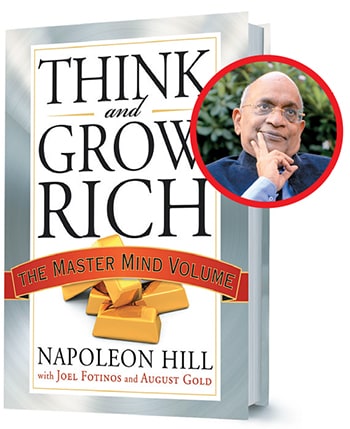 RS Agarwal
RS Agarwal
Founder and executive chairman, Emami
The one book that has impacted me the most is Think and Grow Rich by Napoleon Hill. It tells you the steps needed to create wealth and be successful in business. Hill writes it is essential to have a definite purpose, a mastermind and an eye for detail to succeed. The book has greatly influenced me in my career, and has acted as a Bible to set the foundation of my business.
I am currently reading My Years with General Motors by Alfred P Sloan, Jr. It is a fascinating read. If you have to read one book on business, then it is this. It is a treasure trove of ideation, showing how Sloan executed his ideas successfully. He was a visionary who saw to it that General Motors became a leading automobile company.
—As told to Sayan Chakraborty 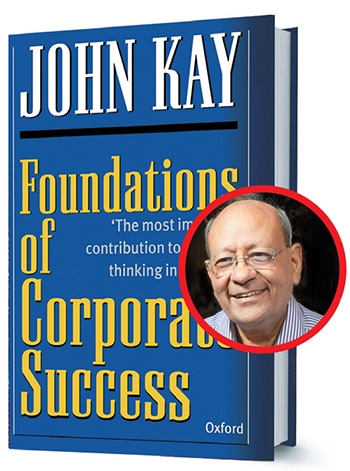
RS Goenka
Founder and whole-time director, Emami
The teachings of the Bhagavad Gita have greatly influenced me in viewing life and its ups and downs from the correct perspective. I have found the Bhagavad Gita’s call for selfless action and to do what is right very inspiring. It has a deep-rooted significance and is extremely relevant to our lives. It has helped me develop the right attitude towards life, work, family and others, and helped bring clarity to my thoughts and actions.
I am currently reading Foundations of Corporate Success by John Kay. This book lucidly explains the sources and sustainability of the competitive advantage of businesses.
—As told to Sayan Chakraborty
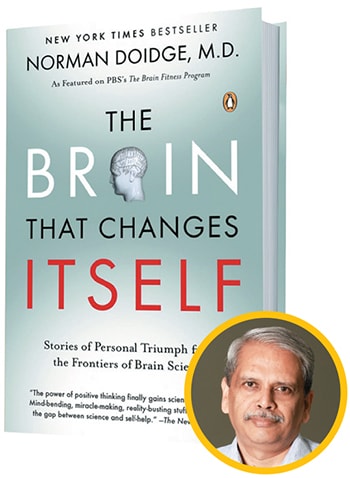
Senapathy Gopalakrishnan
Co-founder, Infosys
Many books have influenced me. One book recently prompted me to delve deeper into understanding the brain and invest in brain research. The book is The Brain that Changes Itself: Stories of Personal Triumph from the Frontiers of Brain Science. It is a book on neuroplasticity by psychiatrist and psychoanalyst Norman Doidge.
I am currently reading Homo Deus: A Brief History of Tomorrow by Yuval Noah Harari. I am reading it since I read and liked his previous book Sapiens: A Brief History of Humankind.
—As told to Sayan Chakraborty 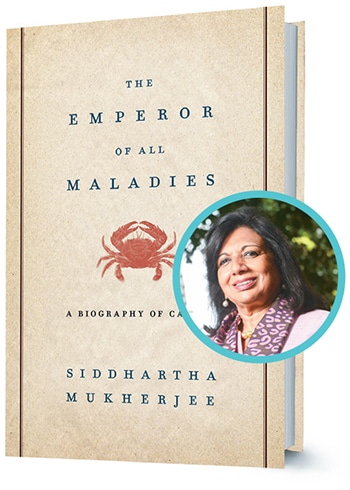
Kiran Mazumdar-Shaw
Chairperson and MD, Biocon
The Emperor of All Maladies: A Biography of Cancer by India-born American physician and oncologist Siddhartha Mukherjee is a must-read for everyone. I read this Pulitzer-winning book in 2011 and it has remained with me because of the clarity and precision with which the author writes about a complex disease like cancer.
I am currently reading a fascinating book called Sapiens by a brilliant Israeli author, Yuval Noah Harari. It was recommended to me by my niece and it is riveting.
It is an exceptional piece of anthropological writing that is a must-read for anyone who wants to understand why we are humans. It provides deep insight into how we have evolved from hunters into sophisticated thinkers. It’s so wonderfully written that you don’t need to be a biologist to understand what human evolution is all about. It is truly impactful in every way as it helps you understand why we emote in certain ways, how we respond to threats and what induces us to be caring.
—As told to Harichandan Arakali
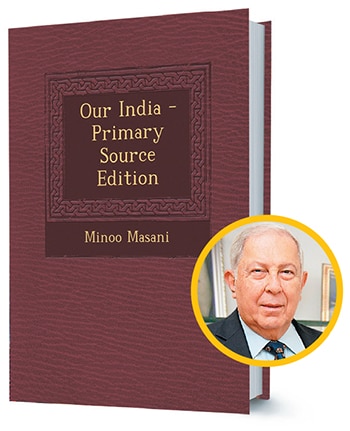
YK Hamied
Non-executive chairman, Cipla
One of the books I had read early on in life, and which had a lasting impact on me, was Our India by Minoo Masani, an Indian politician and freedom fighter who wrote the book in 1940. I had read the book during the Partition in 1946-47, when I was 11 years old. The book was all about India and the problems it faced, and it suggested measures by which those challenges could be overcome. I still remember what was written and even have a copy of the book somewhere in my office. It had a lasting impression on me because I am very nation-minded as well. Many of the things I have tried to do, even at Cipla (which was set up by my father Khwaja Abdul Hamied to make India self-reliant in health care), have been with keeping national interests in mind. In fact, I think the book is worth reading again for youngsters.
—As told to Aveek Datta
(This story appears in the 30 November, -0001 issue of Forbes India. To visit our Archives, click here.)




